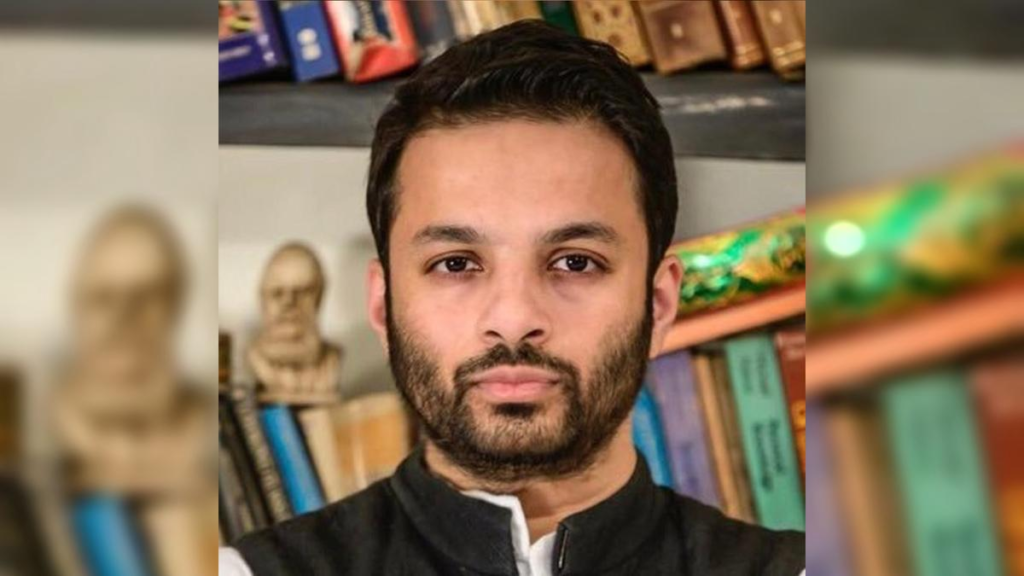SUPREME COURT on Wednesday granted interim bail to Ashoka University Professor Sabyasachi (Ali) Khan in a case registered over his controversial social media post allegedly justifying terrorist attacks. While granting temporary relief, the apex court imposed a vital condition: the professor has to abstain from making any statements or remarks, either online or offline, which are capable of being understood as support for terrorism or terrorist actions.
The order was given by a holiday bench of Justices Bela M Trivedi and Pankaj Mithal, which considered Khan’s plea following the Delhi High Court’s denial of anticipatory bail to him last week. The SUPREME COURT recognized the right of the academic to liberty but emphasized the need to balance it against the interests of public order and national security.
Ashoka University Political Science department faculty member Professor Khan was arrested under several sections of the Indian Penal Code and the Unlawful Activities (Prevention) Act (UAPA) for a social media post on April 25. The post was said to have challenged the response of the state to terrorism and was interpreted by many as implicitly glorifying terror acts. The police asserted that the words used in the post had the capacity to cause disaffection and endanger public peace.
On hearing, the SUPREME COURT clarified that freedom of speech cannot be employed for justifying or explicating acts of terrorism. However, while granting interim bail until the next hearing set for July, the court instructed Professor Khan to not travel outside Delhi without prior sanction and to assist fully with the investigation.
The court further cautioned that breach of these terms would lead to the immediate cancellation of the interim bail.

SUPREME COURT: What are the implications of the interim bail and speech restriction order for academic freedom in India?
The SUPREME COURT ruling has been the stimulus for a wider discussion about the limits of academic freedom and the role of public intellectuals. While there has been alarm from some academics and civil liberties groups that the bail provisions will silence critical voices, others have said that considerations of national security should come first if public platforms are being irresponsibly used.
The case has attracted global attention from universities, legal academics, and civil society groups. Ashoka University, in its public statement, stated that it would abide by the court’s decision while reaffirming its belief in free expression under the boundaries of law. The prosecution and clampdown on Khan and the imposition of certain restrictions, however, have concerned some faculty members, who believe that this might lead to a chilling effect on academic debate, especially on the humanities and social sciences.
On behalf of the Delhi Police, Additional Solicitor General S.V. Raju contended that the professor’s tweet was not protected speech under Article 19(1)(a) of the Constitution as it incited enmity and posed potential disturbance. Intelligence agencies had reported the tweet as going viral before it was removed. The FIR was lodged under IPC sections 153A (inciting enmity between groups), 505 (statements leading to public mischief), and UAPA provisions.
Professor Khan’s lawyer, senior counsel Kapil Sibal, argued that the post was scholarly in nature and meant to stimulate thinking instead of providing support for terrorism. He argued that his client did not have any criminal background and was a prominent scholar with a track record of critical commentary on public policy issues.
THE SUPREME COURT, though making no final observations regarding the case merits at this point, decided to err on the side of caution by granting interim relief with tight safeguards. The court averred that the “nature of the allegations and the material on record require a careful balance between the constitutional rights of the accused and the interests of justice.”
Legal analysts have pointed out that the SUPREME COURT‘s attitude in this case is similar to past occasions when it has walked a tightrope between civil freedoms and the role of the state to maintain peace and order. The interim bail orders of the court do not necessarily represent a determination of guilt but are aimed at avoiding unnecessary incarceration while keeping legal processes in motion without hindrance.
This is at a time when various examples of social media usage by scholars, students, and activists have caught the eye of the law. The Ministry of Home Affairs and the police have issued advisories in the past advising people—particularly public figures—to refrain from putting out statements that would agitate social harmony or propagate violence.
With the case to be brought up for discussion again this July, the SUPREME COURT is likely to discuss in greater depth the character of Khan’s remarks and whether these are protected academic speech or verge on criminality.
As for now, Ashoka University remains in the eye of controversy. This is not the first time that the institution has hit the headlines due to faculty members being targeted for criticism over politically charged issues. Earlier, resignations of high-profile professors for similar controversies had triggered internal conflict and country-wide debates on the status of academic freedom in India.
The SUPREME COURT’s decision in the upcoming hearings could set a significant precedent on how academic speech is treated under national security laws in India. For now, Professor Khan remains free on interim bail, but under strict judicial scrutiny, with the court’s message clear — academic status does not exempt one from the consequences of potentially inflammatory speech.
ALSO READ
Supreme Court Slams CLAT Errors
Ashoka University Professor Condemns Arrest of Colleague as ‘Calculated Harassment’